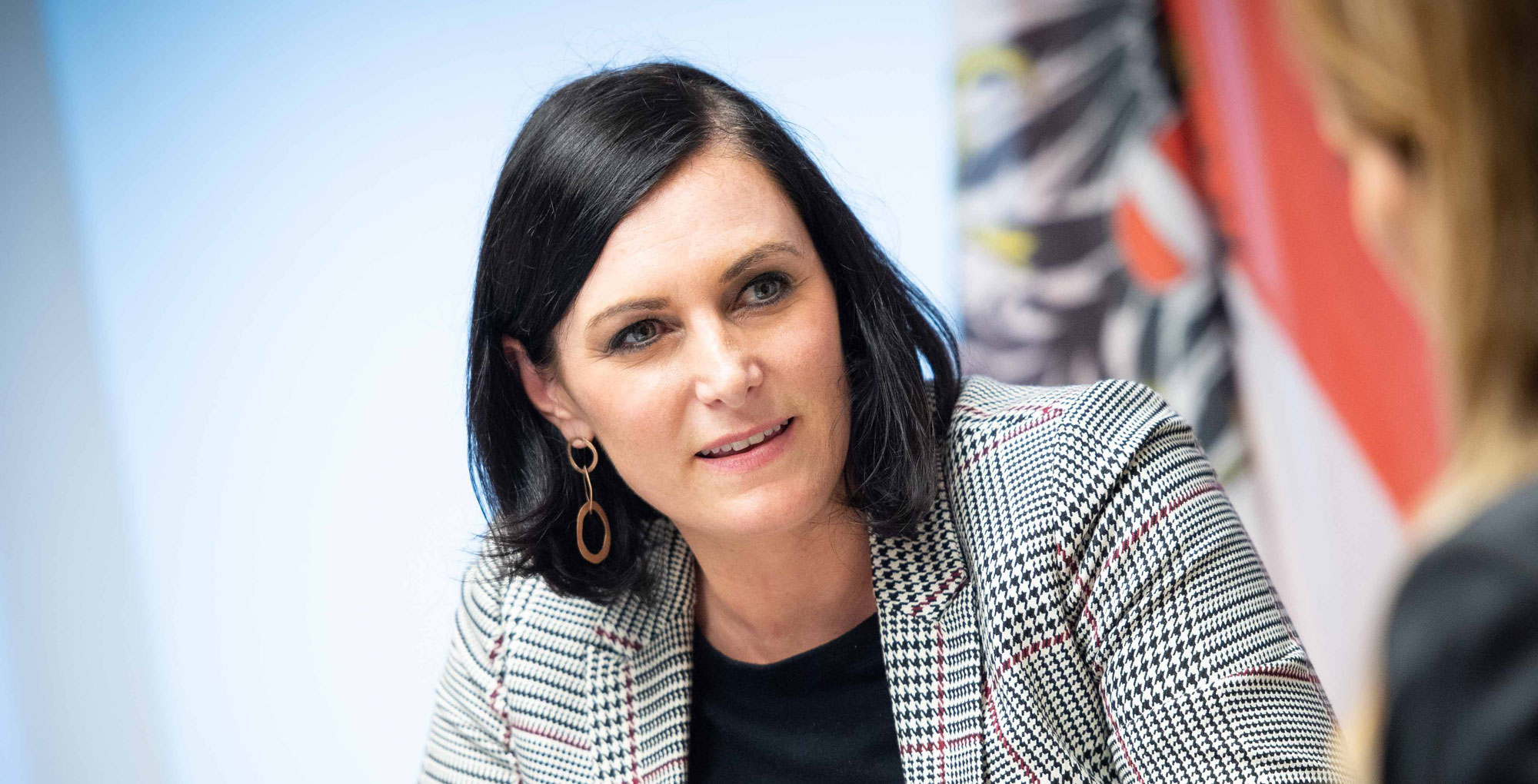
30 Jan A delicate balance of sustainability and tourism
Elisabeth Köstinger, Minister of Sustainability and Tourism, discusses Austria’s advances in the tourism sector, its renewable energy and its status in Europe
What are your priorities for 2018?
In agriculture it is essential that we focus on our small-scale family farms. These high-standard mountain farms, especially in the western part of Austria, are a unique resource, and their continued development is vital.
Our environmental focus is tackling climate change, one of the fundamental challenges of our century; crucial for agriculture, energy, and tourism, and something that affects all my responsibilities.
Energy production is a top priority. Around 72 percent of our electricity comes from renewable resources, primarily hydro, but we aim to achieve 100 percent by 2030 – that’s 15 years earlier than California. For energy storage we have great ambitions: we want every house in Austria to be able to produce electricity for itself, and by using storage and photovoltaic facilities this could be possible.
Finally, tourism is one of our economic pillars, at around 16 percent of the gross domestic product (GDP), and we are consistently developing our strategies. The Master Plan T aims to combine tourism with agriculture, specifically gastro-tourism. We test-drove the program in February and March and plan to launch it in the spring of 2019. Our tourism goals are also combined with issues such as digitalization.
How do you evaluate Austria’s tourism sector successes?
For winter tourism we are the world leader. We now aim to prolong the seasons, offering facilities to attract tourists during spring and autumn. Our record in traditional tourism is impressive, and in western Austria health tourism projects are prevalent, capitalizing on our famous lakes and spas.
Does a regional and national approach produce the most effective results?
We must highlight that regions are unique, and each has its own dynamism, development and spirit. Competition between regions creates an effective national system, but for exporting the Austrian brand, it’s crucial to have a united voice. The trick is to take a holistic approach. Uniqueness and regional autonomy are essential, but our sectors and patrons should be united.
How do you support family businesses in Austria?
Ninety-four percent of businesses in Austria are small and medium sized enterprises (SMEs). We provide facilities, data, statistics, and website support to SMEs developing on our cross-platform economy. We also offer subsidies and aid innovation. When companies create something, we provide the network.
“We were honored to be chosen for the most important conference in the tourism industry.”
Elisabeth Köstinger, Minister of Sustainability and Tourism
Your neighbors Germany and Italy are emblematic tourist destinations. How does Austria’s tourism compare?
Naturally, Germany and Italy are competitors, but they are also partners, especially in mountain regions. We collaborate actively in winter sports. The outstanding air quality is a USP for Austria. Another crucial point is security. With conflict in countries like Egypt and Turkey, many Europeans prefer to holiday in Europe, making Austria more attractive. A safe state is paramount for tourism.
The 17th European Tourism Forum was held in Austria, could you tell us more?
European Union tourism is decentralized, and we focus on working together better. The U.N. General Secretary of The World Tourism Organization highlighted our Master Plan T project as an excellent example of strategic planning in tourism, as it brings all the positive effects of regions and the industry together. As a whole it presents a suitable model for all EU countries. We were honored to be chosen for the most important conference in the tourism industry.
Finally, in our EU presidency, and at the forum, we have negotiated issues with the rest of Europe. We succeeded last week in reaching a collective agreement on the CO2 reduction for cars, and so we now have a responsibility to carry out these initiatives.

